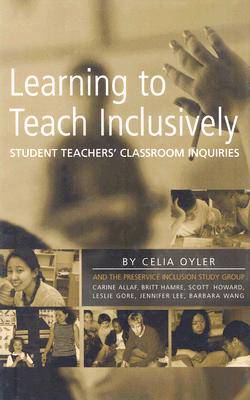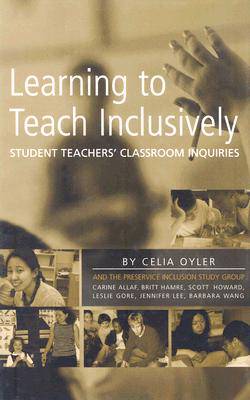
- Retrait gratuit dans votre magasin Club
- 7.000.000 titres dans notre catalogue
- Payer en toute sécurité
- Toujours un magasin près de chez vous
- Retrait gratuit dans votre magasin Club
- 7.000.000 titres dans notre catalogue
- Payer en toute sécurité
- Toujours un magasin près de chez vous
Learning to Teach Inclusively
Student Teachers' Classroom Inquiries
Celia Oyler
Livre relié | Anglais
274,95 €
+ 549 points
Format
Description
This book takes a unique, illuminating look at the experience of student teaching from the perspective of student teachers. Its premise is that learning to teach is an inquiry process that can be systematically studied. Readers see close-up student teach
Spécifications
Parties prenantes
- Auteur(s) :
- Editeur:
Contenu
- Nombre de pages :
- 180
- Langue:
- Anglais
Caractéristiques
- EAN:
- 9780805854305
- Date de parution :
- 25-07-06
- Format:
- Livre relié
- Format numérique:
- Genaaid
- Dimensions :
- 172 mm x 233 mm
- Poids :
- 417 g







